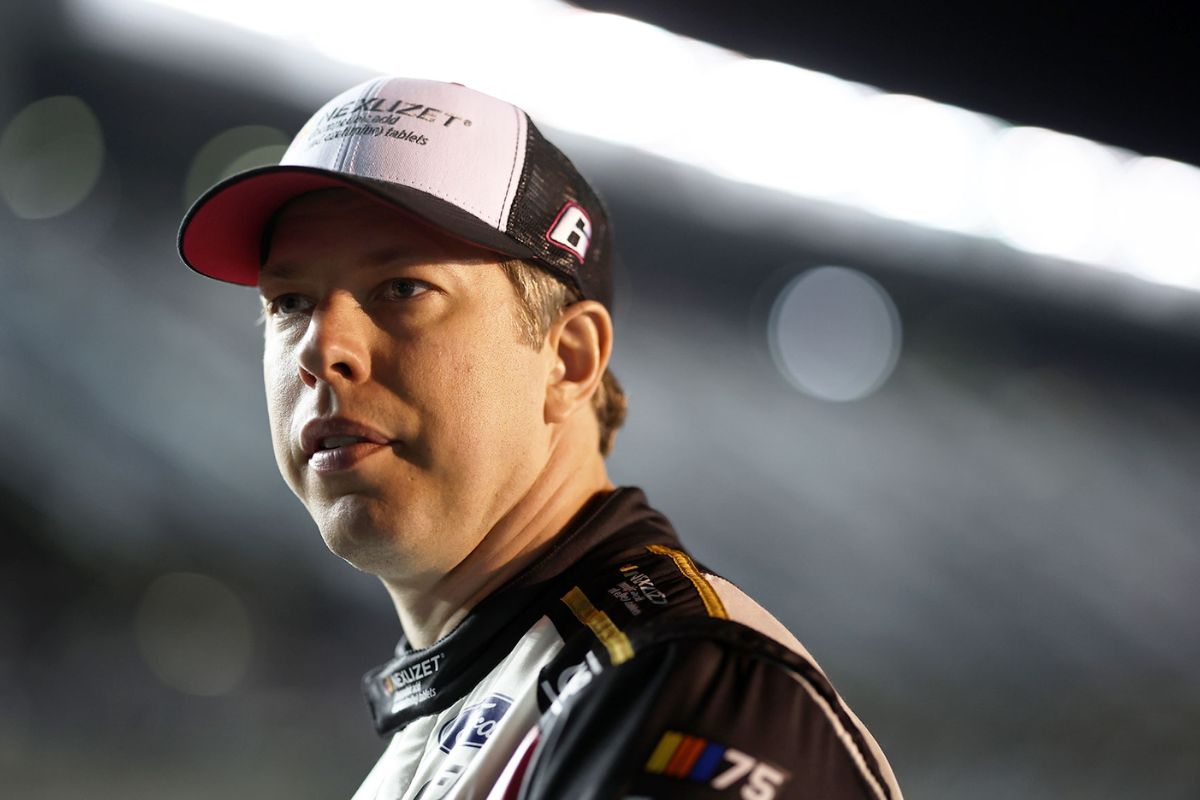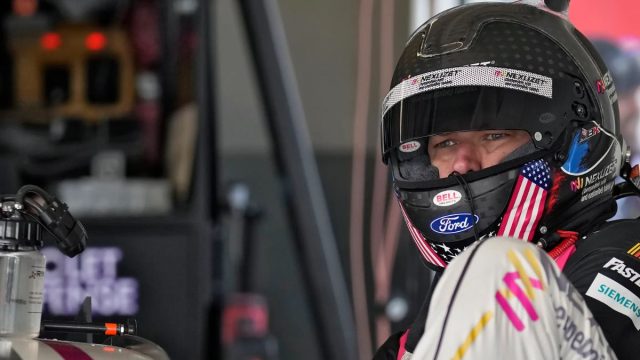Brad Keselowski Slams Short Track Package: Amidst the high-octane sport of NASCAR, Brad Keselowski’s recent criticism of the short track package has ignited an intense debate among the racing enthusiasts.
As a seasoned driver with a keen eye for the intricate dynamics of the sport, Keselowski’s objection sheds light on a controversial issue that has long divided opinions within the racing community.
The implications of his critique not only resonate within the confines of the track but also extend to the essence of what defines thrilling racing.
In a sport where innovation and tradition collide, Keselowski’s stance sets the stage for a compelling exploration of the future direction of NASCAR.
Christopher Bell’s Victory and Short-Track Package Success
Christopher Bell’s triumph at the Phoenix race not only showed his driving prowess but also highlighted the effectiveness of the new short-track competition package in amplifying his performance. Bell’s victory in his Toyota Camry demonstrated a mastery of his driving skills and adaptability to the changes brought about by the package. The race showcased how the aerodynamic adjustments and thicker-tread tires influenced the competition, with Bell’s team successfully leveraging these modifications to secure the win.
Bell’s ability to navigate the unique track layout at Phoenix while maximizing the advantages offered by the new package is a testament to his talent as a driver. The strategic decisions made by his crew chief further emphasized the importance of teamwork and technical understanding in modern NASCAR racing. As the first race to feature the short-track competition package, Phoenix set an example for how these changes could impact the dynamics of future races, with Bell emerging as a frontrunner in adapting to and capitalizing on these developments.

Brad Keselowski’s Objection on the Short-Track Package
Brad Keselowski’s disagreement regarding the new short-track package introduces a contrasting perspective to the positive reception observed following Christopher Bell’s victory at Phoenix. While Bell’s crew chief praised the changes, Keselowski expressed reservations about evaluating the package at Phoenix due to its unique track layout. Despite Adam Stevens’ positive remarks on improved racing conditions, Keselowski maintained that the car is not perfect for short-track racing. However, he did acknowledge that the racing at Phoenix showed improvement compared to the previous fall.
- Keselowski questions the suitability of the new package for short tracks.
- He highlights the unique challenges of evaluating changes at Phoenix.
- Despite reservations, Keselowski recognizes some improvements in the racing.
- His objection sparks a debate on the effectiveness of the short-track package proposed by NASCAR.
Keselowski’s Performance and Optimism for Bristol
Demonstrating a notable improvement in performance at Phoenix, Brad Keselowski of RFK Racing secured a 4th place finish, showcasing a promising trajectory for his team as they head into the upcoming race at Bristol Motor Speedway. Despite Christopher Bell’s dominant speed, Keselowski’s strategic race execution highlighted RFK Racing’s competitive edge. The team’s presence with two drivers in the top 5 bodes well for their momentum going forward.
Keselowski’s optimism stems from the progress seen at Phoenix, where the team’s performance exceeded expectations. The 102-race winless streak adds pressure, but Keselowski’s confidence in RFK Racing’s abilities injects hope into their Bristol aspirations. The upcoming race presents an opportunity for Keselowski to capitalize on the momentum gained, aiming to translate recent improvements into a long-awaited victory.
As Keselowski prepares for Bristol, the Phoenix race serves as a benchmark for assessing RFK Racing’s capabilities. The team’s potential, coupled with Keselowski’s determination, sets the stage for an exciting and potentially rewarding performance at Bristol Motor Speedway.

News in Brief
Brad Keselowski’s critique of the new short-track package has sparked intense debate in the NASCAR community. While Christopher Bell’s Phoenix victory showcased the package’s potential, Keselowski, citing Phoenix’s unique layout, questions its suitability for short tracks. Despite reservations, he acknowledges improved racing conditions. Keselowski’s 4th place finish at Phoenix signals RFK Racing’s upward trajectory, instilling optimism for Bristol. The team’s performance, exceeding expectations, adds pressure to end Keselowski’s 102-race winless streak. As Bristol approaches, Keselowski aims to capitalize on momentum, seeking a breakthrough victory. The Phoenix race becomes a crucial benchmark for assessing RFK Racing’s capabilities, setting the stage for Bristol’s exciting possibilities.
Our Reader’s Queries
Q. Has Brad Keselowski ever won at Bristol?
A. In a challenging turn of events, Keselowski faced adversity with a crash on lap 188, concluding the race in 32nd place. Reflecting back to March 18, 2012, brighter times emerged as he clinched his first win of the season at the Food City 500 in Bristol. The triumph continued with a victory at the Aaron’s 499 in Talladega, skillfully navigating a late-race restart and receiving a crucial push from Kyle Busch to surpass Matt Kenseth. Keselowski’s resilience through setbacks and triumphs shapes a compelling narrative, emphasizing the unpredictable nature of NASCAR racing.
ALSO READ: Brad Keselowski’s 101-Race Winless Streak: The Surprising Reason He Ignores It Revealed
